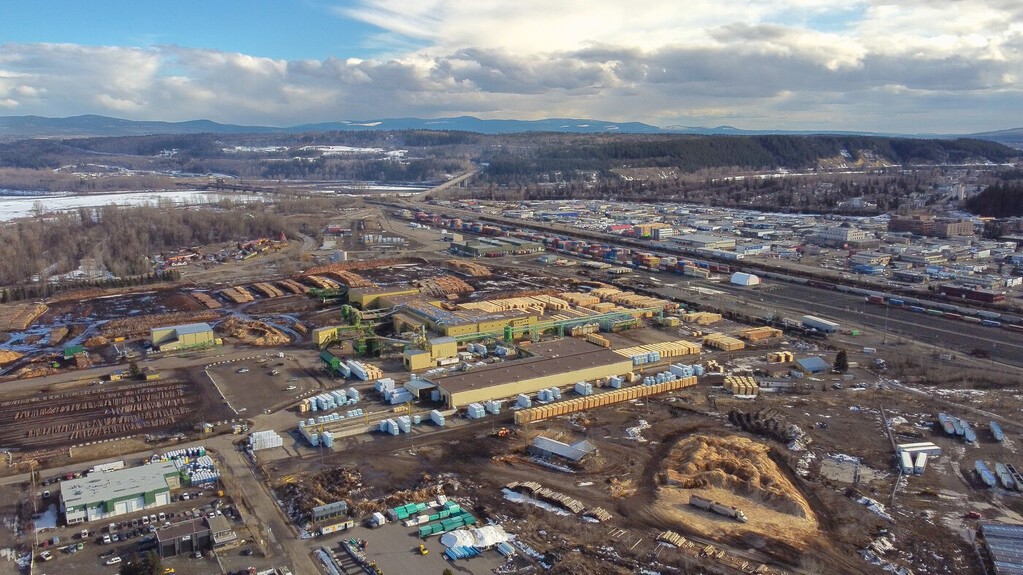
 Resources
Resources

Strengthening Trade Resilience: Ongoing Outreach Series
In spring and summer 2025, Trade and Invest BC engaged with B.C. businesses through a series of regional events to discuss trade challenges — particularly the impacts of U.S. tariffs — and promote strategic opportunities and provincial resources.
A Province-Wide Engagement Effort on Economic Resilience
The Provincial Response to U.S. Tariffs outreach series spanned seven key locations across British Columbia:
- Kelowna – March 19
- Burnaby – April 11
- Nanaimo – April 24
- Surrey – May 2
- Comox Valley – June 2
- Prince George – June 24
- Fraser Valley – July 16
Each session welcomed between 25 to 70 participants, including representatives from local businesses, municipal governments, chambers of commerce, academia and civil society. The diversity of attendees underscored the widespread interest in trade issues and the importance of regional collaboration.

Responding to Tariffs and Promoting Diversification
The central theme of the outreach series was B.C.’s strategic response to U.S. tariffs and the broader implications for provincial exporters. Ministry staff highlighted its suite of support programs, with a particular focus on Export Navigator — a key initiative designed to help small and medium-sized enterprises expand into new markets.
These events served not only as informational platforms but also as listening sessions. Trade and Invest BC team actively solicited input from attendees on how tariffs have affected their operations, using this feedback to refine provincial strategies and ensure that policy responses remain grounded in real-world business experiences.

Response to Tariffs: Insights from the Fraser Valley Session
The final event in the Fraser Valley brought together a robust panel including representatives from Export Navigator, the Ministry’s Trade Policy and Export Services teams and the Honourable Rick Glumac, in his previous role as a minister of state for trade. The Mayor of Abbotsford also joined the discussion, emphasizing a unified regional approach among Abbotsford, Chilliwack and Mission to tackle tariff-related pressures. Given the Fraser Valley’s proximity to the U.S. border and its reliance on cross-border transportation, industries such as agriculture and logistics were central to the conversation.
Participants voiced consistent concerns about federal counter tariffs imposed on U.S. imports. While exemptions for critical goods helped mitigate some impacts, many businesses reported inflationary pressures and increased costs. Several attendees expressed that the federal government should reconsider its counter tariff strategy, citing the unintended consequences for B.C. enterprises.
Key Business Takeaways and Emerging Trade Trends
Across all sessions, a few core themes emerged:
- Resilience and Diversification: Businesses are actively developing their own plans to diversify markets and strengthen supply chains and will be looking to government for support with these initiatives through programming and advocacy.
- Interprovincial Connectivity: Attendees expressed interest in improving trade within Canada, suggesting that stronger interprovincial ties could help buffer against international volatility.
- Sectoral Opportunities: Market intelligence shared during the sessions pointed to growth potential in industries such as mining, energy and manufacturing. These sectors are expected to play a pivotal role in B.C.’s trade future.
Looking Ahead: Future Sessions and Strategic Focus for Exporters
As the dust begins to settle on the immediate tariff concerns, the ministry of JEG is renewing its focus toward long-term diversification. Upcoming sessions will delve deeper into specific sectors and explore how trade agreements like Canada-European Union Comprehensive Economic and Trade Agreement (CETA) and the Comprehensive and Progressive Agreement for Trans-Pacific Partnership (CPTPP) can be leveraged to open new doors for B.C. exporters.
The Provincial Response to U.S. Tariffs outreach series exemplifies the power of regional engagement in navigating global trade challenges. By listening to local voices and promoting strategic resources, the province is laying the groundwork for a more resilient and diversified economic future.
While the framework of the spring series will remain intact, future events will emphasize actionable strategies and sector-specific insights. Businesses, policymakers and regional leaders are encouraged to participate and continue shaping B.C.’s trade trajectory.
To stay informed and register for upcoming sessions, visit our events page.
Complete this form
Tell us how U.S. Tariffs are impacting your business and any other suggestions you may have.
We Can Help
Trade and Invest BC helps facilitate foreign direct investment and has Trade and Investment Representatives in markets around the world. Contact the representative nearest you for support in investing in British Columbia.

